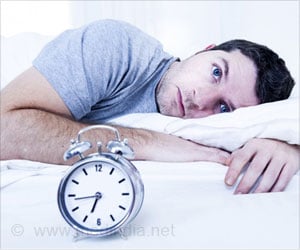Poor sleep at night, snoring, and other sleep problems can reduce an individual's performance at work in the morning.

TOP INSIGHT
Sleep is an essential element to be considered in workplace health, as poor sleep can decrease work productivity.
Other sleep complaints were relevant as well. For example, those with even mild insomnia experienced 58 percent more productivity loss, those who reported problems with daytime sleepiness experienced 50 percent more productivity loss, and those who snored regularly (a sign of sleep apnea) experienced 19-34 percent more productivity loss, compared to those who didn't snore.
Often, people sleep less with the hopes of being more productive. This study shows that this is not the case - compared to those who regularly got 7 to 8 hours of sleep, those who reported getting 5 to 6 hours experienced 19 percent more productivity loss, and those who got less than 5 hours of sleep experienced 29 percent more productivity loss.
"Many people believe that in order to get more done, they need to sacrifice sleep," said senior author Michael Grandner, PhD, MTR, director of the Sleep and Health Research Program and assistant professor of psychiatry at the University of Arizona College of Medicine in Tucson. "This study shows that, quite to the contrary, poor sleep is associated with lower productivity in general, and specifically across a wide range of areas."
The study utilized data from the Sleep and Healthy Activity, Diet, Environment, and Socialization (SHADES) study, including 1,007 adults between the ages of 22 and 60 years. Work productivity was evaluated with the validated Well-being Assessment of Productivity (WBAP) tool, which includes items assessing factors such as health, worries, depression/anxiety, and financial stress.
"In a real-world sample of about 1,000 people, those who were sleeping less, and those who were not getting good quality sleep, were actually at a disadvantage when it comes to productivity," said lead author Robert Yang, a student research assistant in the Sleep and Health Research Program led by Grandner. "This is further evidence that sleep is not wasted time it's wisely invested time!"
The research abstract was published recently in an online supplement of the journal Sleep and is presented in Baltimore at SLEEP 2018, the 32nd annual meeting of the Associated Professional Sleep Societies LLC (APSS), which is a joint venture of the American Academy of Sleep Medicine and the Sleep Research Society.
Source-Eurekalert
 MEDINDIA
MEDINDIA




 Email
Email










